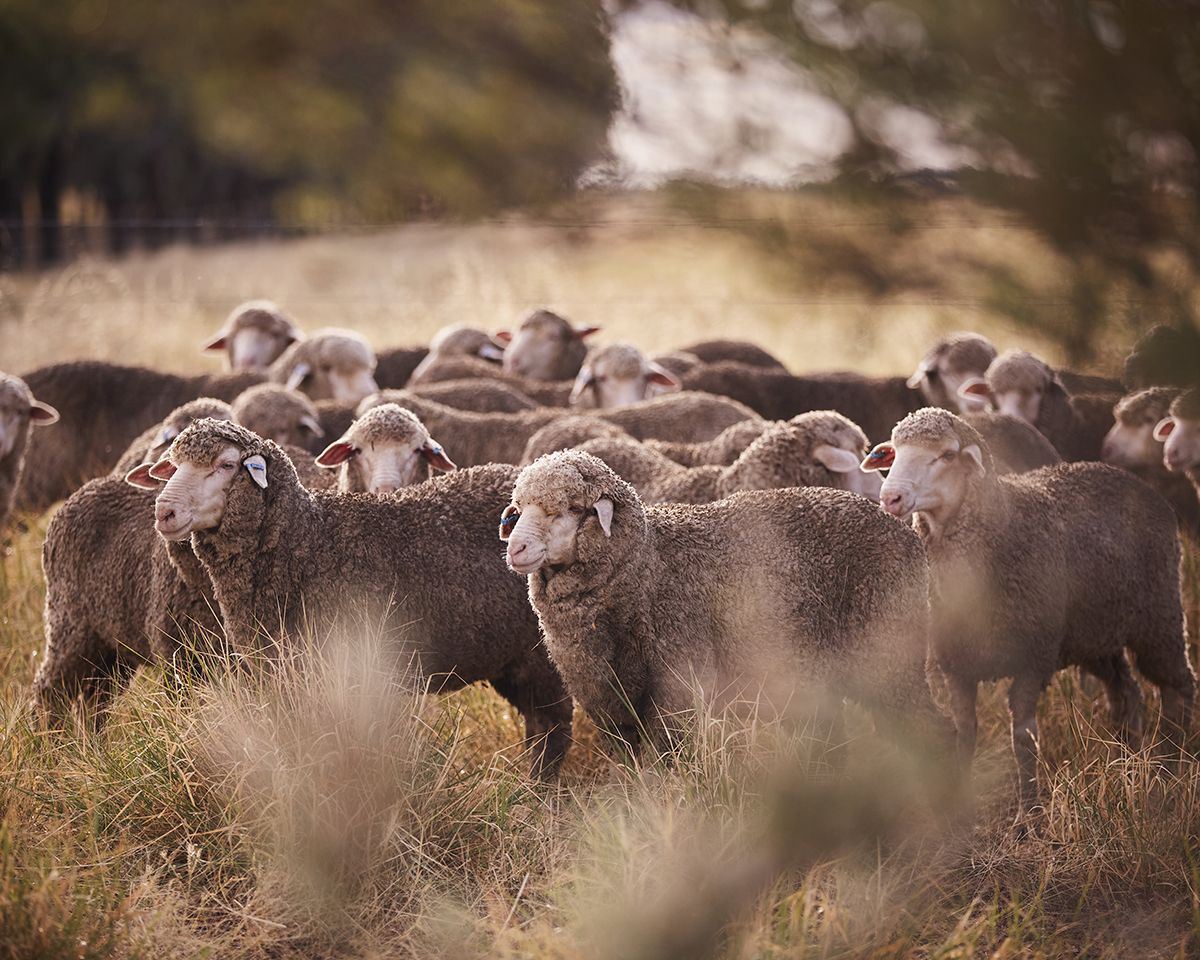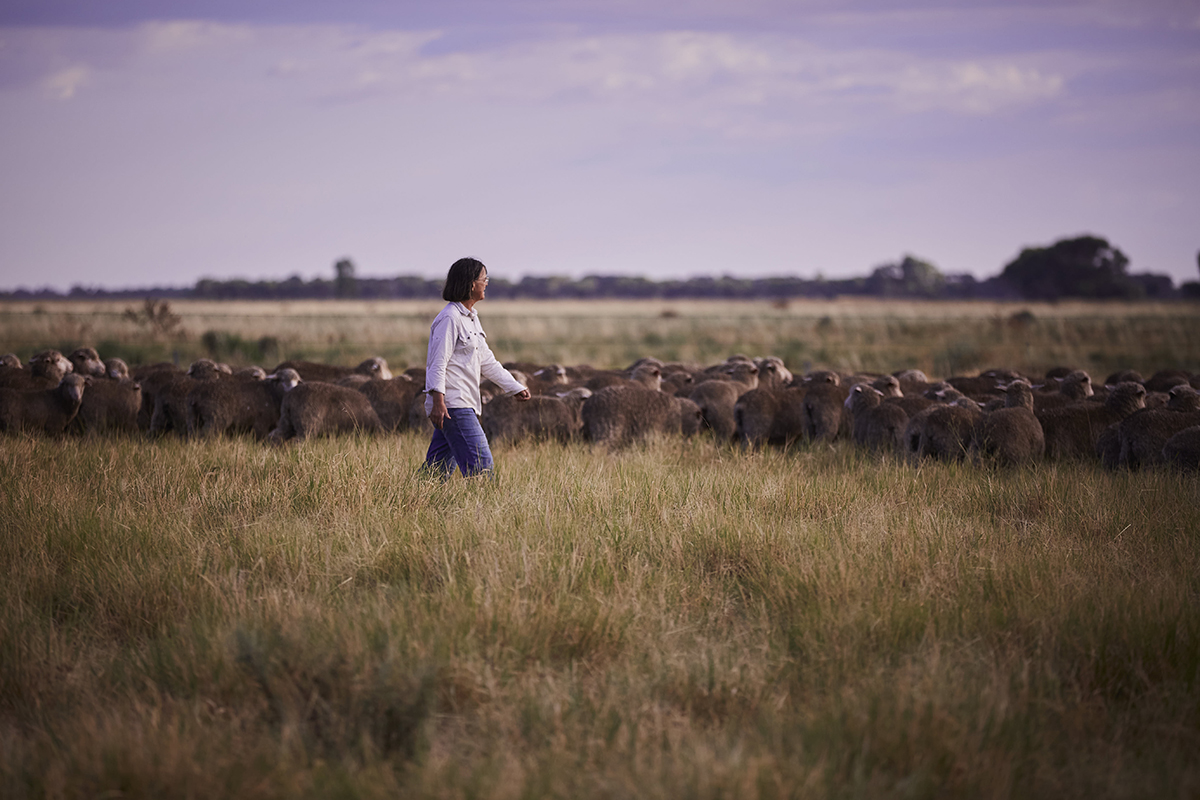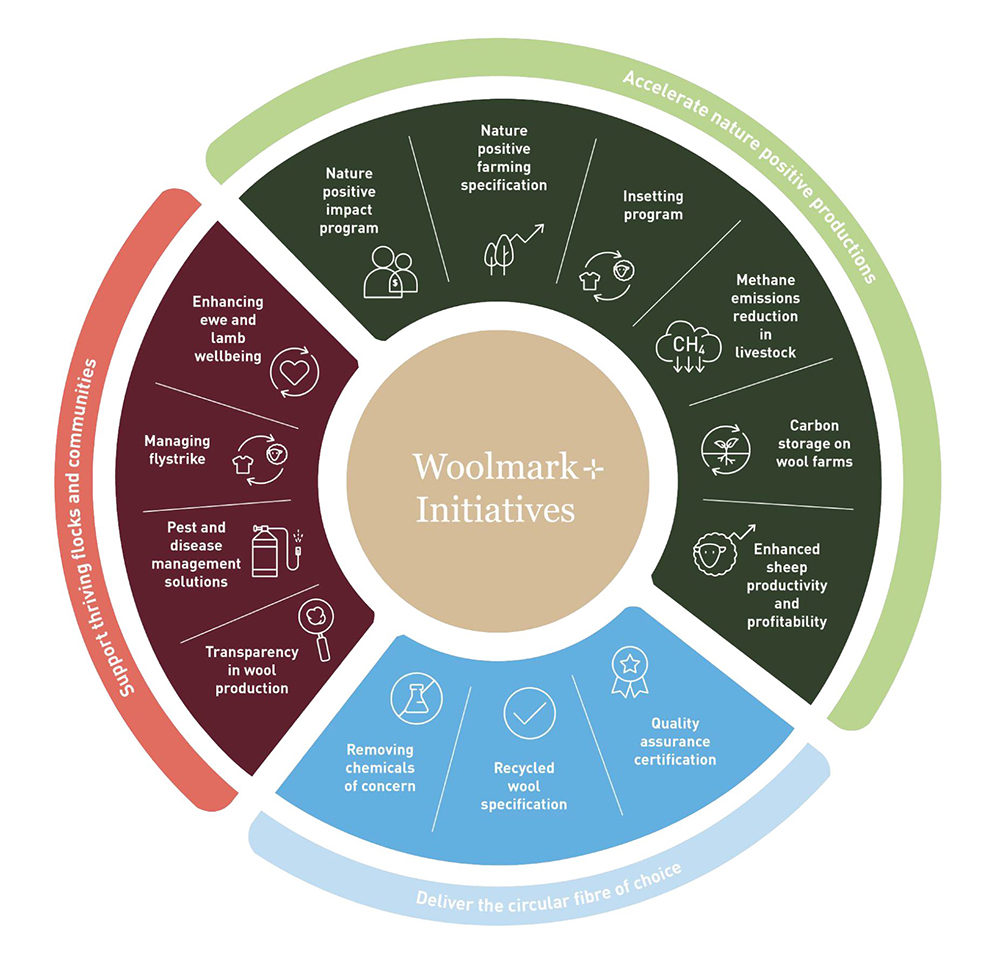WOOLMARK UNVEILS WOOLMARK+ SUSTAINABILITY PROGRAM

Woolmark has launched Woolmark+, a program to unite woolgrowers, supply chain, and brands to ensure a sustainable future for the wool industry. The program launches at a pivotal moment for the global fashion industry, which faces increasing demands to adopt sustainable practices amid regulatory and consumer pressure.
Woolmark+ aims to accelerate low-impact production, promote circularity, and enhance animal well-being and woolgrower livelihoods. The roadmap sets out 13 practical initiatives intended to empower nature regeneration, reduce carbon emissions, and optimize productivity. This approach supports woolgrowers in meeting their business objectives and aligns with brands’ increasing commitment to mitigate Scope 3 emissions and bolster supply chain sustainability. (According to the E.P.A., Scope 3 emissions “are the result of activities from assets not owned or controlled by the reporting organization, but that the organization indirectly affects in its value chain. An organization’s value chain consists of both its upstream and downstream activities.”)

- Insetting Program: This groundbreaking initiative will establish the foundation for a wool insetting market, linking woolgrowers with global brands aiming to meet their emission targets through on-farm, nature-based solutions.
- Methane Emissions Reduction in Livestock: Comprising nine research and development projects, this program focuses on identifying effective strategies to reduce methane emissions from grazing sheep. Early results include a 19% average methane reduction, and 27% productivity increase in grazing sheep consuming Agolin, and a 50% methane reduction when consuming Asparagopsis (an edible algae).
- Nature Positive Farming Specification: Developed in consultation with woolgrowers and industry partners to provide credible measures of on-farm environmental performance and enable brands to make defensible claims. Building on a detailed ecological assessment of 130 wool farms, this study has identified a set of core metrics that can cost-effectively verify on-farm performance. A pilot project will look at operationalizing these metrics.
- Nature Positive Impact Program: This program will connect investors with research, development, and conservation projects that reduce emissions, enhance biodiversity, promote climate resilience, and enable circularity.
- Woolmark Recycled: A new Recycled sub-brand has been added to the Woolmark Certification program to encourage more quality-assured, recycled wool products and support wool’s position as the most recycled apparel fiber.
Looking beyond net zero, to nature positive
By avoiding carbon tunnel vision and targeting nature-positive, Woolmark highlights the co-benefits of wool-growing for both nature and livelihoods. Nature-positive is defined as halting and reversing nature loss by 2030, measured from a baseline of 2020, with approaches to restoration optimized for carbon sequestration, biodiversity recovery, and livelihood benefits.
“With more than 60 years of experience, Woolmark understands the nuances of the textile industry and is dedicated to driving its success by aligning economic prosperity with positive ecological and social impact,” explained John Roberts, Managing Director, The Woolmark Company. “Woolgrowers in Australia are stewards of over 65 million hectares of land, and they can play a critical role in the global transition to a low-emission, nature-positive market. Their commitment to nature needs to be well recognized and supported to demonstrate the wool industry’s role in supporting and enhancing biodiversity beyond net zero targets.”
 Designed with woolgrowers for the benefit of all
Designed with woolgrowers for the benefit of all
At its core, Woolmark+ focuses on supporting the livelihoods of woolgrowers in their role as stewards of nature. Through research, training, and the development of new tools and investment avenues, the initiatives help woolgrowers to enhance climate resilience, reduce carbon emissions, foster biodiversity, and progress animal wellbeing. The Carbon Storage Partnership is just one example of how Woolmark is collaboratively investing to identify effective and appropriate techniques for woolgrowers to reduce greenhouse gas (GHG) emissions while building biodiversity and improving productivity. The project is due to be finished in 2025; on-farm modeling is underway, and case studies for various regional zones have been completed.
Alongside environmental stewardship, the roadmap promotes a holistic, nature-positive approach through the development of supply chain programs that aim to advance circularity while ensuring demand for wool.
For further information and to download the Woolmark+ roadmap, visit Woolmark.com/woolmarkplus.





 Designed with woolgrowers for the benefit of all
Designed with woolgrowers for the benefit of all